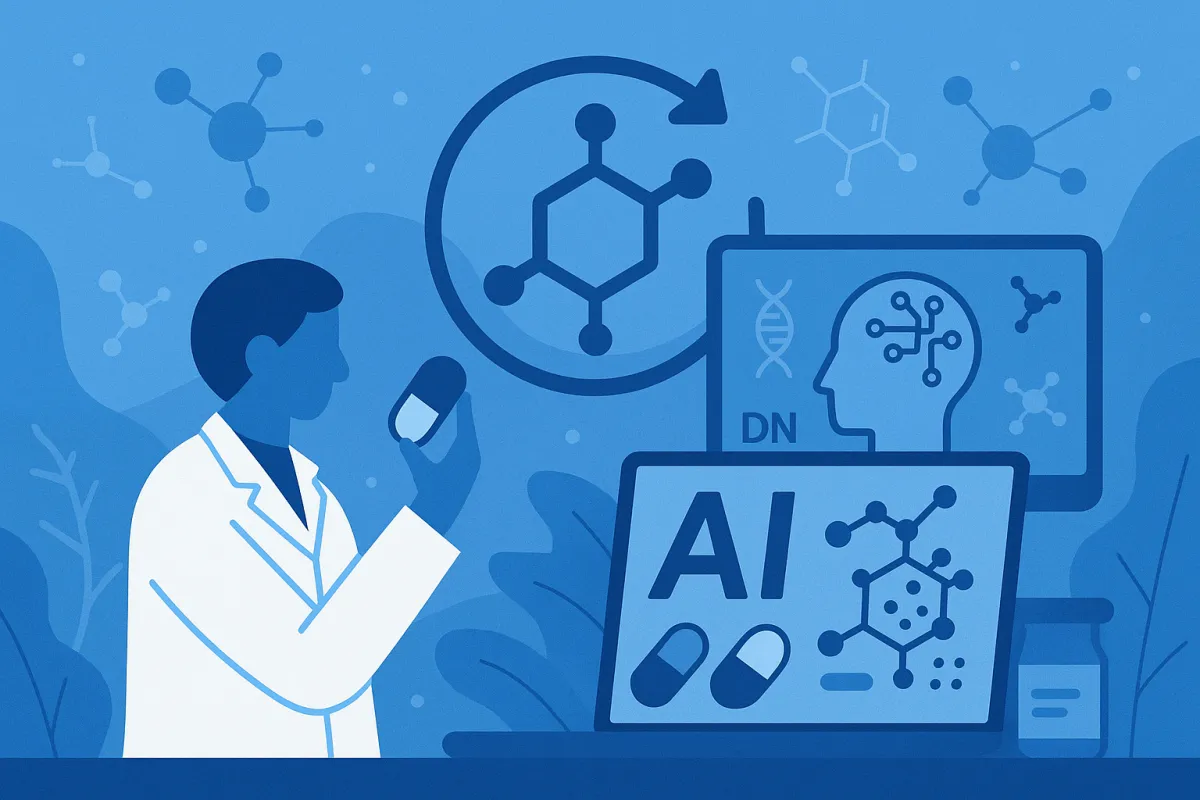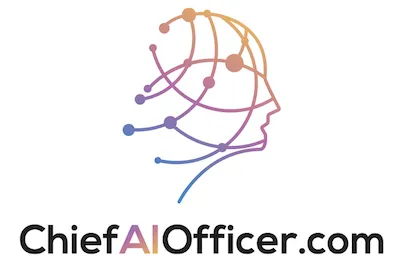
AstraZeneca's AI Designs New Drugs in Weeks
How AstraZeneca's AI Designs New Drugs in Weeks (While Competitors Take Years)
Most pharmaceutical companies spend 10-15 years and billions of dollars developing new drugs through trial-and-error research that fails 90% of the time. AstraZeneca built an AI system that generates novel therapeutic molecules from scratch, accelerates drug discovery from years to weeks, and targets previously "undruggable" diseases while generating over $44 billion in annual revenue through systematic drug development transformation.
The transformation is revolutionary. AstraZeneca operates the most advanced drug discovery platform in pharmaceuticals through AI that analyzes biological relationships, predicts molecular behavior, and designs therapeutic compounds with precision that traditional drug development cannot achieve through conventional research methods.
This represents complete pharmaceutical industry evolution that demonstrates how artificial intelligence can eliminate the inefficiencies and failures that plague traditional drug discovery while creating competitive advantages through systematic innovation and predictive medicine development.
The Strategic Vision That Revolutionized Drug Discovery
AstraZeneca's leadership made a decision that most pharmaceutical executives struggle to execute: they transformed drug discovery from traditional trial-and-error research to systematic AI-driven innovation that predicts molecular success and designs therapeutic compounds with scientific precision.
Instead of relying on random compound screening and lengthy preclinical testing, they built AI systems that understand biological relationships, predict drug interactions, and generate novel therapeutic molecules that address specific disease mechanisms with higher success probability.
This strategic transformation required fundamental changes to research methodologies, clinical development processes, and partnership strategies. Traditional pharmaceutical research operates through extensive compound libraries with manual screening processes. AstraZeneca created AI capabilities that design targeted therapies systematically rather than discovering them accidentally.
The competitive implications extend beyond research acceleration to comprehensive advantages through improved success rates, reduced development costs, and breakthrough therapies that address previously intractable diseases and market opportunities.
Pervasive AI Integration That Transforms Every Research Phase
AstraZeneca's systematic AI integration demonstrates comprehensive research transformation that embeds artificial intelligence into drug target identification, molecule design, clinical trial optimization, and regulatory submission processes rather than treating AI as supplementary research tool.
The AI operates as "predictive and generative partner" that enables rapid hypothesis generation, novel molecule creation, and systematic addressing of disease targets that traditional drug discovery approaches cannot tackle effectively due to complexity limitations.
This pervasive integration ensures that AI capabilities compound across research phases rather than providing isolated improvements to individual processes while maintaining scientific rigor and regulatory compliance throughout development pipelines.
The systematic approach creates operational leverage where AI insights from target identification inform molecule design, which guides clinical trial optimization and regulatory strategy development through coordinated intelligence rather than disconnected research activities.
Biological Insights Knowledge Graph That Creates Data Supremacy
AstraZeneca's proprietary data ecosystem demonstrates sophisticated information architecture that creates vast, multimodal datasets through initiatives like the Biological Insights Knowledge Graph that provides unique, rich training data for AI systems.
The FAIR (Findable, Accessible, Interoperable, and Reusable) data organization multiplies dataset value to internal teams and external partners while creating sustainable competitive advantages through proprietary biological intelligence that competitors cannot replicate.
This data supremacy enables AI training and pattern recognition that smaller pharmaceutical companies cannot achieve through limited research data and biological knowledge while providing competitive moats through proprietary biological insights.
The systematic approach to data creation demonstrates how pharmaceutical companies can build sustainable competitive advantages through AI capabilities that improve with proprietary data accumulation rather than depending solely on public research information.
Generative AI That Innovates Rather Than Optimizes
AstraZeneca's generative AI capabilities demonstrate advanced therapeutic innovation that creates new molecules, antibodies, and proteins from scratch rather than simply optimizing existing compound libraries through conventional screening approaches.
The AI learns complex biological relationships to generate therapeutic compounds that address specific disease mechanisms while considering safety profiles, bioavailability, and manufacturing feasibility during initial design phases.
This innovative approach enables systematic addressing of "undruggable" disease targets that traditional drug discovery cannot tackle through existing compound modifications and optimization strategies alone.
The generative capability creates breakthrough opportunities while reducing development timelines through systematic innovation that designs targeted therapies rather than hoping to discover effective compounds through extensive screening programs.
Partnership Ecosystem That Accelerates Discovery
AstraZeneca's strategic partnerships with BenevolentAI, Turbine, Immunai, and academic institutions demonstrate sophisticated collaboration strategies that enhance AI capabilities while accessing specialized expertise and additional data sources.
The collaborative approach enables rapid scaling of AI applications while building ecosystem advantages through shared research capabilities and coordinated innovation efforts that exceed individual company capabilities.
Partnerships provide access to cutting-edge AI technologies while maintaining focus on pharmaceutical applications and therapeutic development rather than pursuing generic AI capabilities without specific drug discovery value.
The ecosystem strategy creates innovation acceleration while building strategic relationships that support long-term competitive advantage development through coordinated research and shared knowledge creation.
Clinical Trial Revolution That Improves Patient Outcomes
AstraZeneca's AI clinical development demonstrates sophisticated trial optimization that accelerates patient recruitment, improves protocol design, and creates virtual control groups that enhance trial efficiency while improving patient safety and treatment access.
The AI analyzes real-world evidence and health record data to optimize trial protocols while using predictive modeling for smarter patient recruitment and inclusion criteria that improve trial success rates and timeline predictability.
Machine learning creates virtual control groups that minimize placebo usage while maintaining statistical validity, improving trial ethics and efficiency through innovative study design that reduces patient burden and accelerates treatment access.
The clinical intelligence enables 85% reduction in documentation time for certain regulatory submissions while maintaining compliance standards and improving submission quality through systematic automation and optimization.
Human-AI Collaboration That Maintains Scientific Excellence
AstraZeneca's approach to human-AI collaboration demonstrates sophisticated integration that treats AI as "thought partner" providing actionable insights while maintaining human scientific judgment and expertise for complex research decisions.
The collaboration enables researchers to focus on challenging scientific problems while AI handles routine analysis, pattern recognition, and hypothesis generation that amplifies human capabilities rather than replacing scientific expertise.
This balanced approach ensures that AI enhances rather than compromises research quality while enabling scientists to tackle more ambitious therapeutic challenges through systematic AI support and intelligence augmentation.
The human-centered AI implementation maintains safety and scientific rigor while accelerating research capabilities through optimal resource allocation between artificial intelligence and human expertise.
Target Identification That Addresses Intractable Diseases
AstraZeneca's AI target identification demonstrates advanced disease understanding that identifies therapeutic opportunities for conditions like chronic kidney disease and idiopathic pulmonary fibrosis that traditional research approaches struggle to address effectively.
The AI analyzes complex disease mechanisms, genetic factors, and biological pathways to identify intervention points that enable therapeutic development for previously intractable conditions while considering druggability and therapeutic feasibility.
This systematic target identification creates market opportunities while addressing significant unmet medical needs through scientific approaches that conventional disease research cannot develop systematically.
The advanced target identification capability enables breakthrough therapy development while creating competitive advantages through therapeutic areas that traditional pharmaceutical research cannot address effectively.
Molecule Design That Optimizes Therapeutic Properties
AstraZeneca's AI molecule design demonstrates sophisticated therapeutic engineering that considers efficacy, safety, bioavailability, and manufacturing requirements simultaneously during initial compound design rather than discovering these properties through lengthy testing processes.
The AI processes molecular relationships, biological interactions, and pharmaceutical properties to design compounds that optimize therapeutic performance while minimizing development risks and manufacturing complexity.
This systematic design approach reduces development failures while creating therapeutic compounds with superior properties compared to traditional discovery methods that rely on screening and optimization of existing molecular scaffolds.
The intelligent design capability creates development efficiency while improving therapeutic outcomes through systematic molecular optimization that traditional discovery approaches cannot achieve consistently.
Real-World Evidence Integration That Informs Development
AstraZeneca's AI real-world evidence analysis demonstrates sophisticated clinical intelligence that processes patient data, treatment outcomes, and healthcare patterns to inform drug development decisions and optimize therapeutic strategies.
The system analyzes healthcare records, treatment patterns, and patient outcomes to identify therapeutic opportunities while validating AI predictions through actual clinical experience and patient response data.
This evidence integration enables more informed development decisions while reducing clinical risks through systematic validation of AI insights against real-world therapeutic performance and patient outcomes.
The real-world intelligence creates development confidence while improving therapeutic success probability through evidence-based development strategies that traditional research approaches cannot validate systematically.
Regulatory Strategy That Accelerates Approval
AstraZeneca's AI regulatory capabilities demonstrate systematic submission optimization that accelerates regulatory approval through intelligent documentation, strategic submission planning, and predictive regulatory analysis.
The AI processes regulatory requirements, submission standards, and approval patterns to optimize regulatory strategies while ensuring compliance with evolving regulatory frameworks and international requirements.
This regulatory intelligence reduces approval timelines while maintaining submission quality through systematic compliance management and strategic regulatory planning that traditional approaches cannot optimize effectively.
The systematic regulatory approach creates market access acceleration while ensuring therapeutic availability through optimized approval processes and strategic regulatory relationship management.
Competitive Positioning Through AI-Enhanced Discovery
AstraZeneca's AI transformation establishes sustainable competitive advantages that traditional pharmaceutical companies struggle to replicate without fundamental changes to research methodologies, data infrastructure, and partnership strategies.
The combination of pervasive AI integration, proprietary data ecosystems, generative innovation, and strategic partnerships creates comprehensive drug discovery capabilities that compound over time as AI systems continue improving and biological intelligence expands.
Traditional competitors face increasingly difficult strategic choices: invest heavily in AI transformation initiatives that require significant technology infrastructure and research process changes, or accept competitive disadvantages in discovery speed, therapeutic innovation, and development success rates.
Risk Management Through Predictive Intelligence
AstraZeneca's AI systems provide comprehensive risk assessment that identifies potential development challenges, regulatory obstacles, and market risks before they create significant project impacts or investment losses.
Predictive analysis evaluates compound viability, clinical success probability, and market opportunity while providing recommendations for risk mitigation that protect development investments and strategic objectives.
This risk intelligence reduces development uncertainty while enabling more confident therapeutic investments and portfolio management based on AI-validated risk assessment and opportunity identification.
The comprehensive risk management creates competitive advantages through more reliable development outcomes and higher success rates compared to traditional pharmaceutical development with greater uncertainty and higher failure risks.
Implementation Framework for Pharmaceutical Executives
AstraZeneca's transformation provides proven strategies for executives considering AI adoption in drug discovery and development operations. The key principles emphasize systematic therapeutic innovation rather than incremental research improvements.
They started with clear competitive objectives: accelerate drug discovery, improve therapeutic success rates, address intractable diseases, and establish systematic innovation capabilities that create sustainable advantages. Every AI capability development served these strategic research goals.
The implementation prioritized comprehensive AI integration over isolated applications while ensuring that AI systems enhance rather than replace human scientific expertise for complex research decisions requiring biological knowledge and therapeutic judgment.
Most importantly, they measured success through therapeutic breakthroughs, development acceleration, regulatory success, and competitive positioning rather than technology adoption metrics or AI capability demonstrations alone.
Future Drug Discovery Through AI Integration
AstraZeneca's AI transformation demonstrates how intelligent systems can address fundamental challenges in pharmaceutical research while creating new possibilities for therapeutic innovation, disease treatment, and competitive positioning in global healthcare markets.
The implications extend beyond individual pharmaceutical companies to comprehensive industry transformation where AI-powered drug discovery becomes essential for competitive positioning and therapeutic breakthrough development in evolving healthcare markets.
For executives evaluating AI initiatives, AstraZeneca provides comprehensive case study in pharmaceutical transformation through AI integration that emphasizes practical therapeutic value creation through systematic innovation and predictive development.
The companies that understand these strategic principles will establish pharmaceutical leadership through AI-enhanced drug discovery and therapeutic innovation that create sustainable competitive advantages. The ones that focus on traditional research approaches will find themselves competing against organizations that operate with discovery speed and therapeutic innovation that conventional pharmaceutical research cannot match.

